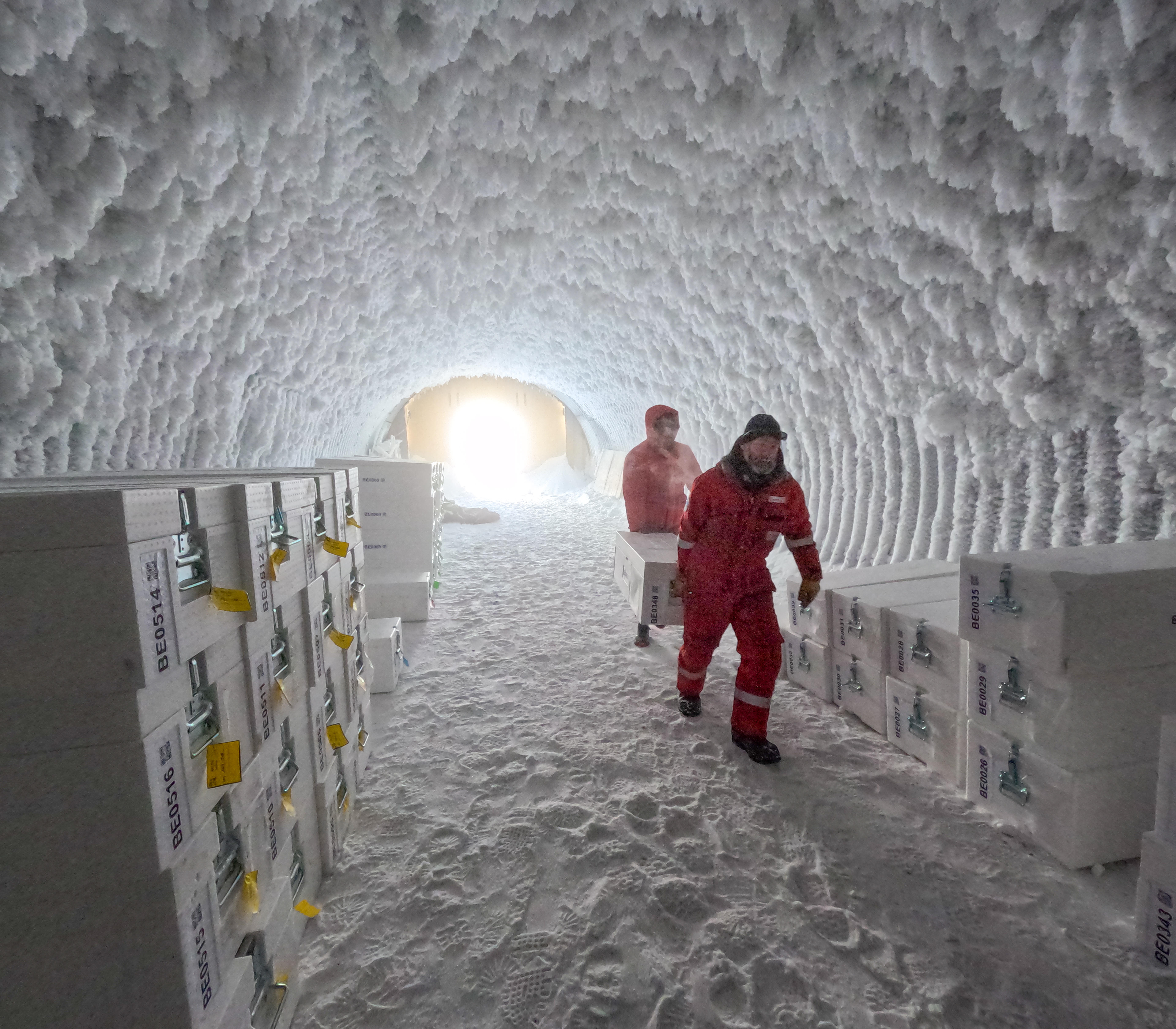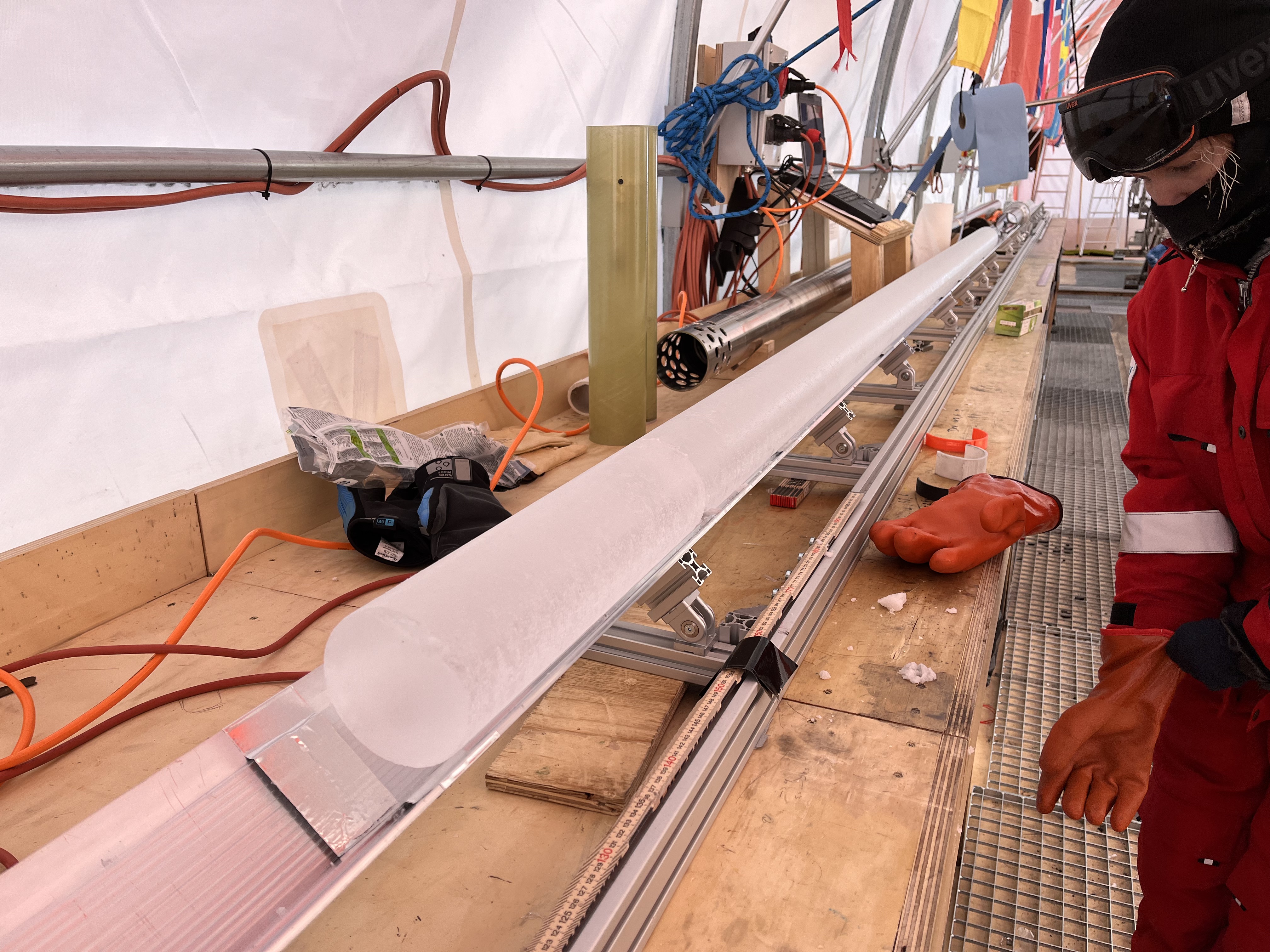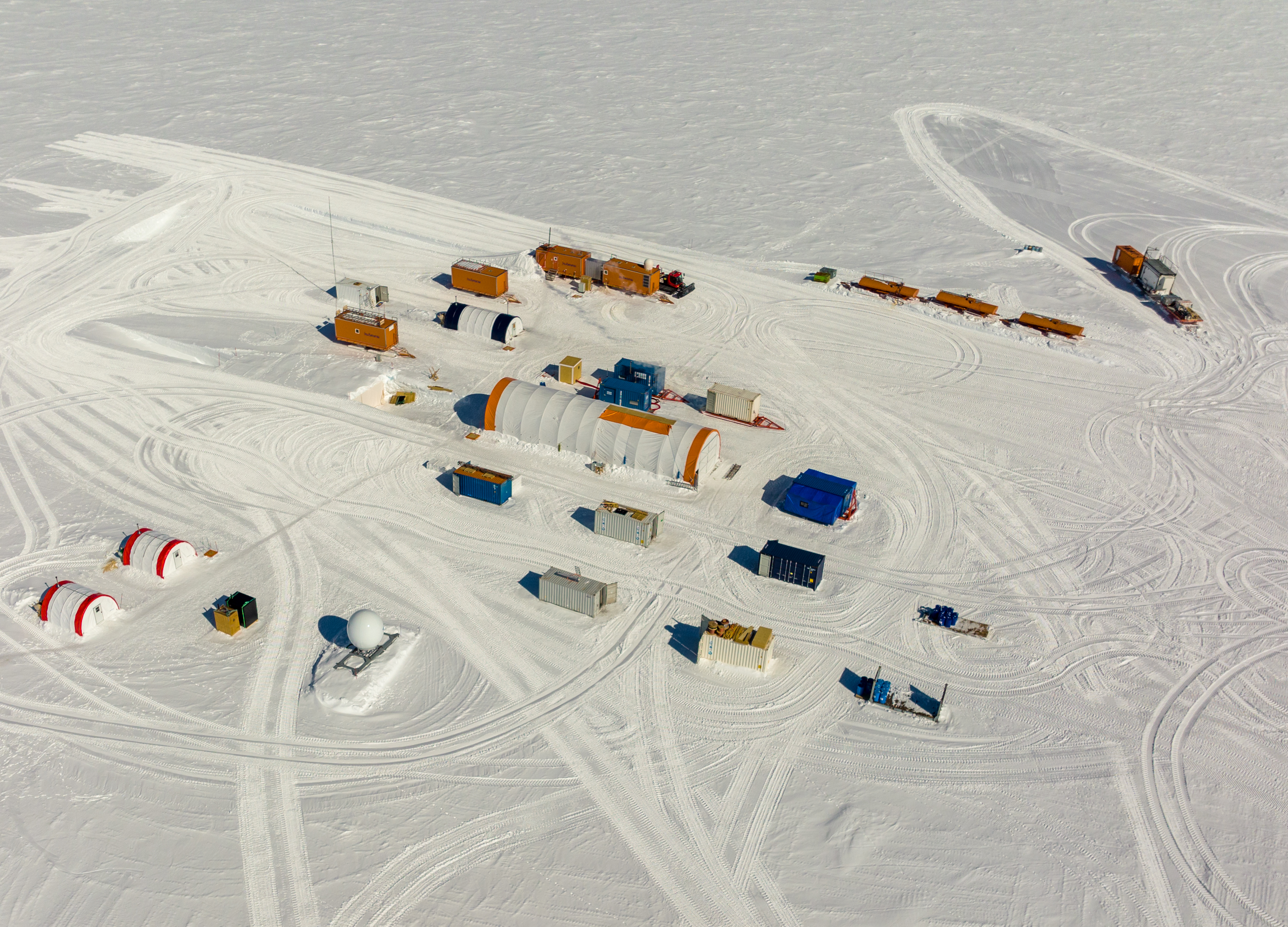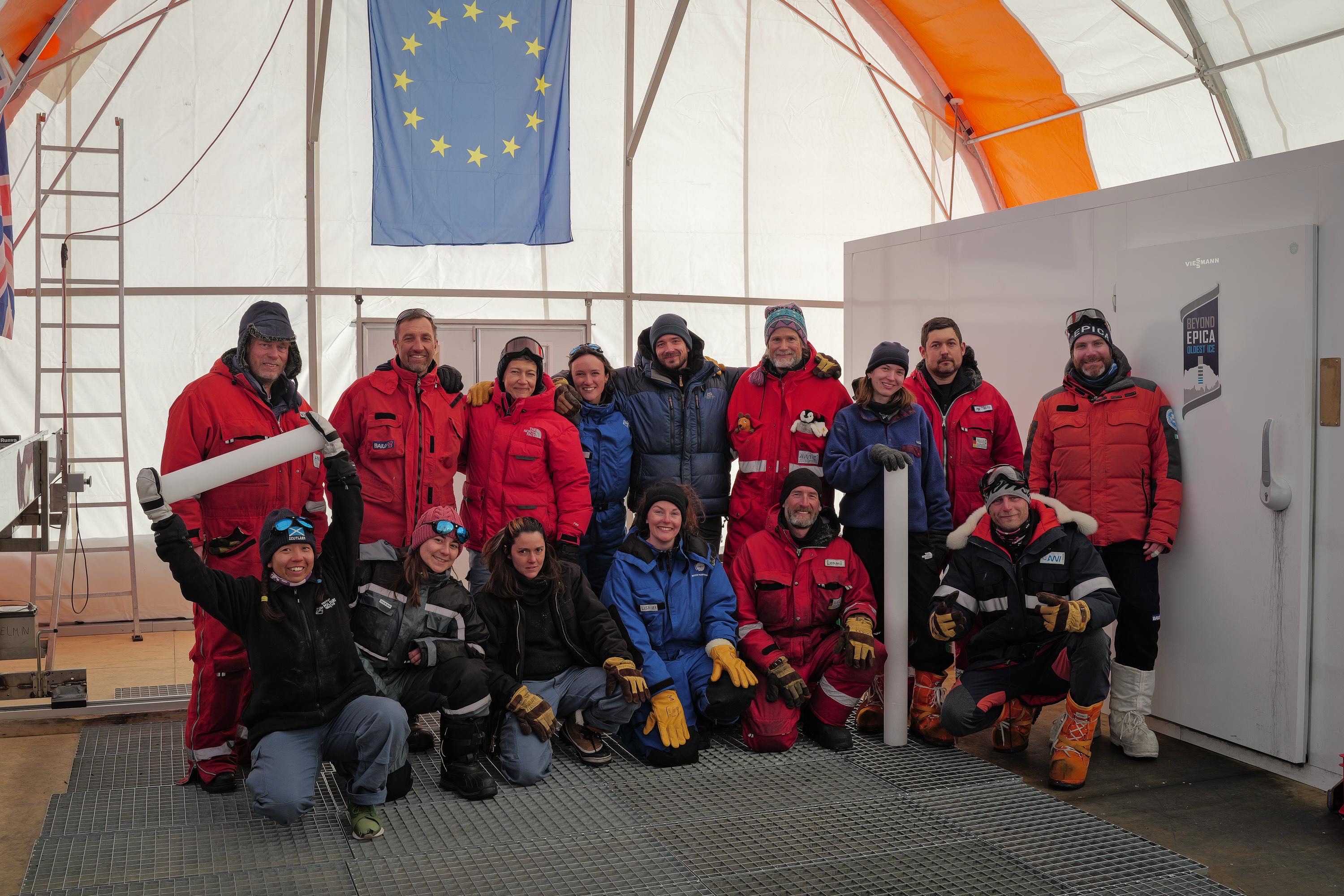Impressive haul of meteorites brought back by Belgian-led team that includes ULB researchers

The meteorite search team, consisting of three scientists from Belgian universities, and a research scientist at the Institut de Recherche pour le Développement in France together with two IPF field guides made its way to the Belgica Mountains of Antarctica, more than 300 kilometers southeast of the research station, in mid December.
Meteorites can be found there on blue ice fields where buried mountain chains push glaciers up and ice is eroded by strong katabatic winds. Starting in the '70s, systematic recovery programmes have been running, as each meteorite holds relevant information about the formation and evolution of the solar system and the celestial bodies, as well as the arrival of water, volatile compounds, and organic matter to Earth.

More impressive than the number were the types of meteorites found. They included at least two achondrites (stony meteorites representing planetary mantles), and several carbonaceous chondrites - the most primitive meteorites similar in composition to the original material of the Solar nebula, the giant, spinning cloud of gas and dust that formed our solar system about 4.6 billion years ago.
Each new (micro)meteorite provides an essential piece of the puzzle we are trying to solve”, said Prof. Dr. Steven Goderis (Vrije Universiteit Brussel) about the importance of the samples he and his colleagues found. “Based on some meteorite fragments, we can learn about planetary differentiation and collisions taking place in the early solar system, and in other fragments we find prebiotic molecules required for the evolution of life”, added Prof. Dr. Vinciane Debaille (Université libre de Bruxelles, a CIVIS member).
The meteorites will be sent to the Royal Belgian Institute of Natural Sciences in Brussels for defrosting, curation, and detailed classification, after which they will become available for research to the involved research teams as well as the international scientific community. The most beautiful pieces will be put on display for the public to enjoy.
Difficult terrain and harsh weather
The Belgica Mountains, located in the Queen Maud Land region in East Antarctica, were discovered by a Belgian expedition team during a reconnaissance mission by airplane within the International Geophysical Year Polar Expedition, in 1958. The reconnaissance had to be stopped after the airplane crashed on the blue ice there. The mountains were last visited by Belgian scientists in the 1960s, until now.

Prior plans for travel by container convoy had to be abandoned for air transport due to difficult terrain. Conditions at the base camp (essentially tents) were harsh, even for the Antarctic summer, with temperatures going down to -31˚C with the wind chill due to strong winds. The team of researchers would head out each day looking for meteorites on snowmobiles in a V-shaped formation so they could cover large areas more easily.
Previous successful meteorite recovery missions in 2009-2010, 2010-2011, 2012-2013, 2018-2019, and 2022-2023 focused on blue ice areas closer to Belgium’s zero-emission Princess Elisabeth Antarctic station, where the Belgian research teams usually orient themselves and train before heading into the field.
This research has been made possible through funding by the Belgian Science Policy (BELSPO) and required heavy logistical support from the International Polar Foundation (IPF), mandated to manage the Princess Elisabeth research station by the Belgian Polar Secretariat.

Latest news:
Sustainability, diversity and safety efforts not awarded with bonuses, UT study reveals
Romanian researchers discover part of a “graveyard of mammoths” in the Buzău Valley
Tackling the health challenge through education & research - CIVIS special feature
Master's Programme in Transdisciplinary Studies of Climate, Environment and Energy
